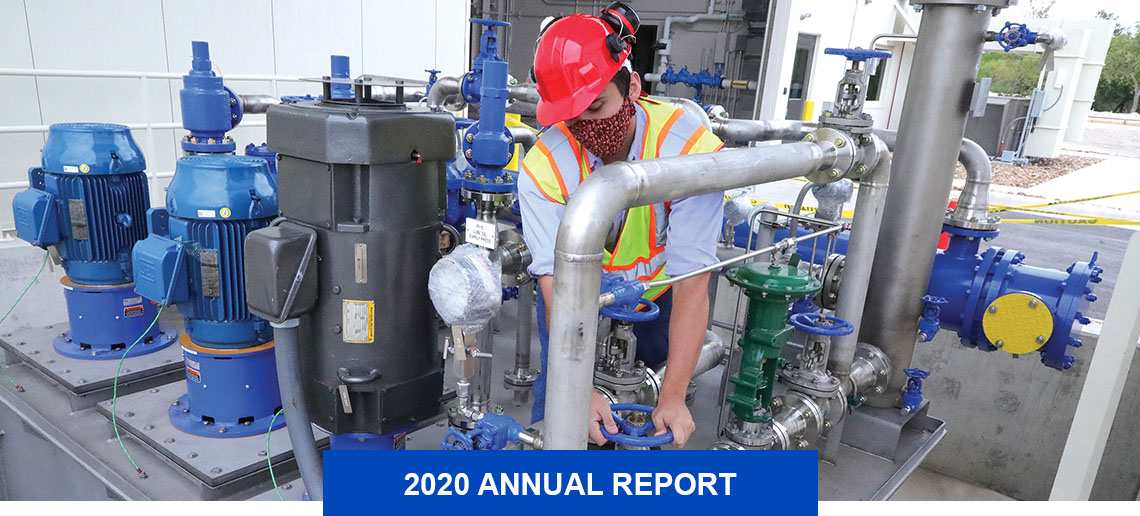
About the Header
In 2020, SwRI completed construction of the STEP sCO2 pilot plant building. We are now installing reconfigurable skid-mounted components, which allows the facility to evolve and keep pace with advancing technology.
Energy fuels the global economy, and Southwest Research Institute is a leading provider of technical solutions that improve the efficiency, reliability, safety and impact of energy, from electric power plants to oil and gas production to nuclear and renewable resources. Comprehensive environmental services complement our work in the energy field.
Energy
SwRI continues to develop technologies to advance power systems for the oil and gas and electric power industries. This year we will commission the 10 MWe Supercritical Transformational Electric Power (STEP) pilot plant, which demonstrates component and system technologies for supercritical carbon dioxide (sCO2) power cycles. We are demonstrating smaller MW-scale test rigs for large turbine seals, advanced compressor-expander architectures and oxy-fuel combustion for a zero-emission direct-fired sCO2 cycle. We also develop grid-scale energy storage technologies in collaboration with commercial companies and the U.S. Department of Energy.
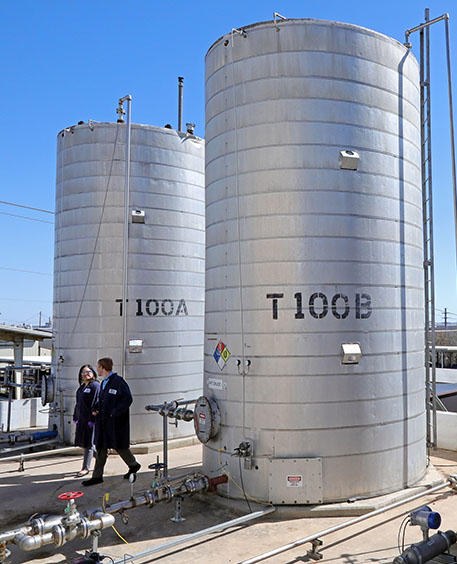
SwRI expanded its fuel blending facilities, which can now produce batches of up to 10,000 gallons of materials such as crude oils, biofuels, distillates, heavy oils and client-specific feedstocks.
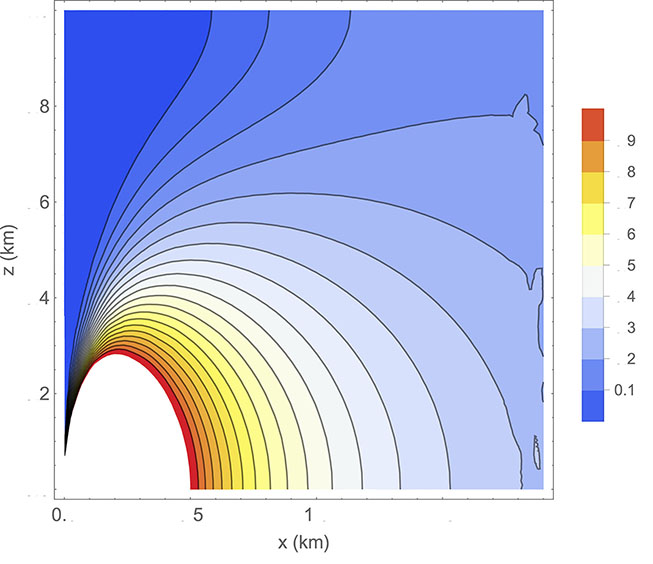
SwRI is enhancing its radiological dose model to incorporate radon inhalation pathways. The plot shows the airborne concentration of radon released from underground disposal of radium-bearing waste.
Since 1987, SwRI has operated the Center for Nuclear Waste Regulatory Analyses (CNWRA®) to assist the Nuclear Regulatory Commission (NRC) with regulatory responsibilities associated with radioactive waste storage, transportation, disposal and related areas. This year, CNWRA staff completed two draft Environmental Impact Statements for long-term consolidated interim storage facilities for spent nuclear fuel, and studied transportation, storage and disposal aspects of the various types of nuclear fuel used in advanced nuclear power reactors. Scientists and engineers also evaluated the operational risk that seismic and volcanic hazards pose for nuclear power plants and continued assisting the NRC in license renewals for nuclear material storage and transportation. We also integrated existing models to efficiently explore complex coupled hydrologic, thermal and mechanical processes in deep geologic repositories.
SwRI engineers and scientists develop and validate novel processes to upgrade and refine hydrocarbon products using custom catalysts, pilot plants and laboratory facilities. SwRI is a leader in developing fuels from unconventional sources, producing biofuels that meet Environmental Protection Agency standards. SwRI has expanded its capacity to develop and certify fuels from alternative sources with a novel fixed-bed reactor that produces stable fuels ready for vehicle use.
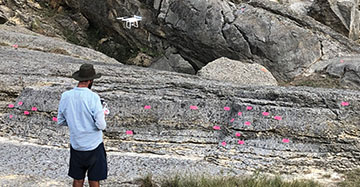
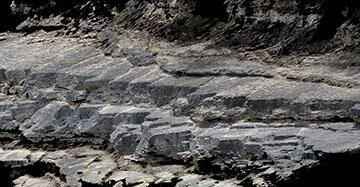
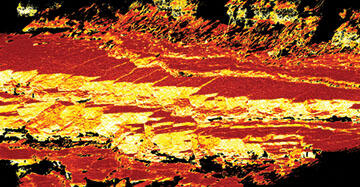
Through digital photogrammetry — reconstructing real-world objects in 3D from overlapping digital images — SwRI can extract accurate and reliable subsurface geologic information from drones flying over surface structures such as outcrops.
In addition, SwRI provides exploration and production support to oil and gas companies, using a range of applications in structural geology and geomechanics. SwRI is developing new drone-based, remote-sensing techniques to digitally map and model exposed geologic structures to better understand subsurface formations associated with petroleum and water reservoirs.
Environment
In 2020, SwRI chemical engineers entered a new arena, supporting industry and government initiatives to address the global glut of plastic waste with new recycling techniques. With over 15 years of pyrolysis process development experience for the energy industry, SwRI is helping clients develop commercially viable technologies to convert plastics into useful chemicals or fuels. In addition to this “circular economy” for plastics, SwRI is investigating the gasification of plastics in its extensive pilot plant facilities with the goal of producing hydrogen as a low-carbon fuel.
Water quality and availability remain important global and local concerns. SwRI developed an integrated hydrologic computer model to evaluate the impact of different types of wastewater disposal facilities on the Edwards Aquifer, the primary water source for San Antonio and surrounding communities.
For more information visit Energy & Environment.